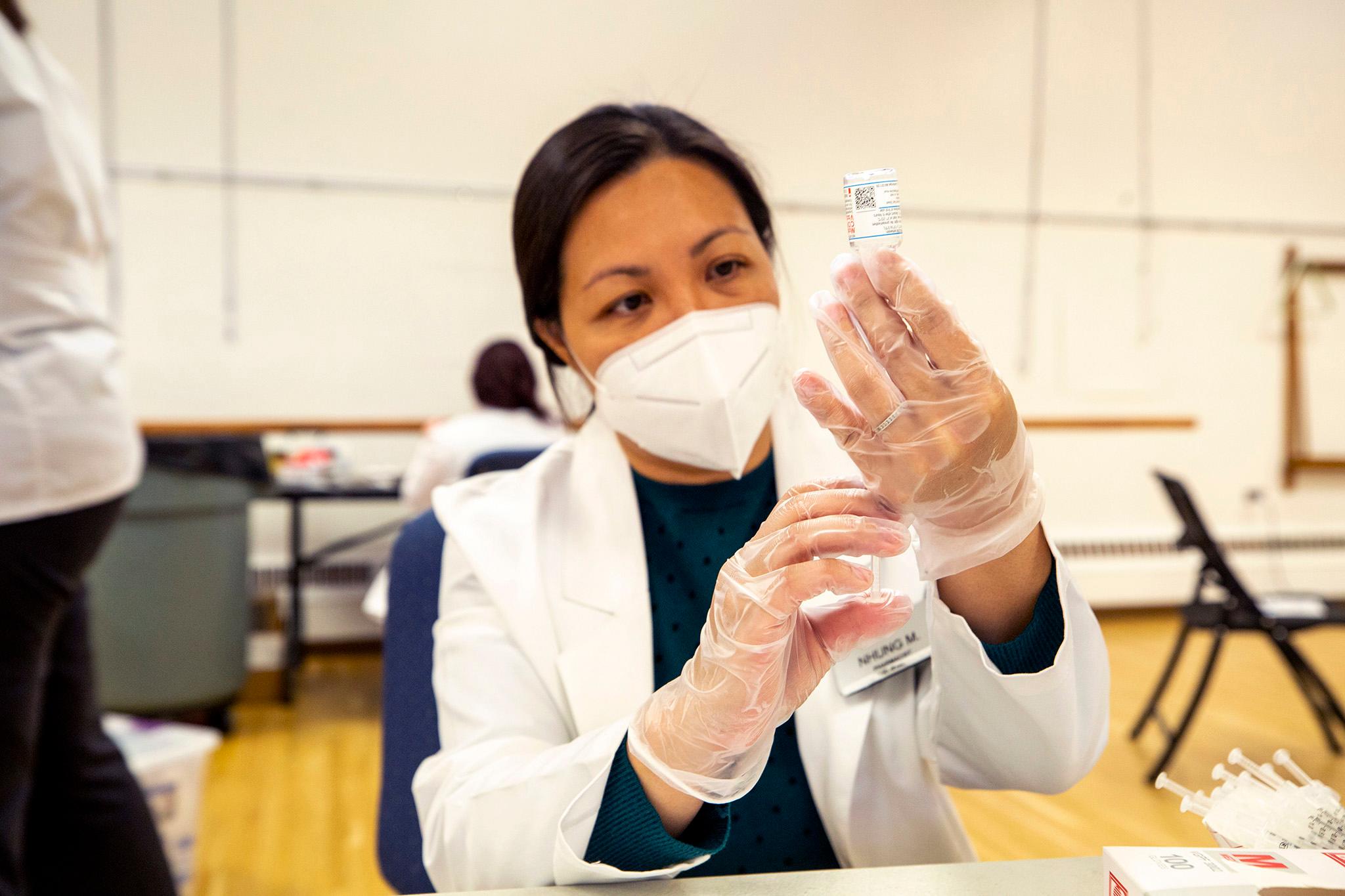
Fueled by the fast-moving omicron variant, Colorado hit a new record for positive COVID-19 cases in a single day — 11,018 on Dec. 31. That was after two days of case numbers above 9,000.
Public health experts agree that the dramatic rise in COVID cases is largely because of the more transmissible omicron strain. As of Monday afternoon, the seven-day positive test rate in the state is at an all-time high of 23.99 percent.
What does that mean for Coloradans going about their daily lives? Dr. Michelle Barron, senior medical director of infection prevention at UC Health, and Dr. Sam Dominguez, a pediatric infectious disease doctor at Children's Hospital spoke to Colorado Matters about omicron.
The omicron variant is more transmissible than delta, but does this new strain make people sicker?
Early data from studies done abroad and domestically suggest that the omicron variant is a milder form of COVID-19, however that does not mean that people should take it less seriously than the delta variant. While omicron does not appear to cause the same severity in cases, it still can make people, especially those who are unvaccinated, sick. This can lead to increased hospitalizations and tax an already strained health care system.
I’m doing everything to protect myself, but is it just a matter of time before everyone catches COVID?
Much like you take precautions to prevent yourself from getting into a car accident — wearing a seatbelt, following traffic laws — there are things you can do to protect yourself against COVID. Continuing to wear a mask while indoors with other people; keeping your distance when possible; getting a vaccination or a booster; and staying home if you feel sick are all measures you can take to keep yourself healthy.
Does the omicron variant affect children differently than previous variants of the virus?
Because the variant is so new, we don’t yet know whether it is more severe for children under the age of 16. However, we do know that children are a more vulnerable population because they have only recently become eligible to receive the vaccine, Dominguez said.
On Monday, Jan. 3, the FDA approved the Pfizer booster shot for children ages 12 to 15 years old. Children younger than 12 are not eligible for the booster, however children between the ages of 5 and 11 may receive the first two shots of the Pfizer vaccine.
If I have a breakthrough infection and haven’t yet received a booster, do I need to get one?
Yes. Because COVID continues to evolve with new variants, it’s extremely important to get a booster shot because it can help protect you from getting infected again and help slow down the virus.
- If you take an at-home COVID test and it’s positive, you’re supposed to report it to Colorado officials. Here’s how
- Is it COVID or a cold? What to do if you feel sick and how to stay safe
- Here’s where you can get a COVID booster shot and test in Colorado
- COVID treatment in Colorado: monoclonal antibodies, steroids and other ways medicine is fighting the virus
- As Colorado faces an omicron surge, booster shot hesitance may allow greater spread
If I get infected with the virus and haven’t gotten the booster, how long should I wait before I get the shot?
You have up to 90 days after infection to get the booster. However, Dr. Michelle Barron, senior medical director of infection prevention at UC Health, recommends getting it as soon as you are no longer experiencing symptoms and are out of the isolation window.
How long should I isolate after I have tested positive for the virus?
The CDC recently updated its guidelines for how long you should isolate after you test positive for the virus. You should isolate for at least five days; if you are no longer symptomatic after five days, you may leave isolation but should wear a well-fitting mask around other people.
Are we going to have to get boosters every six months from now on?
As long as COVID continues to evolve, it is likely that we will need to bolster our immune systems with a vaccine or booster shot. Eventually, we may be able to prevent COVID with an annual vaccine like the flu vaccine, but we are not there yet.
Have we reached herd immunity yet?
No. "We still do not have that magical, herd immunity that we were all hopeful we would attain by having access to vaccines," Barron said.
This is because not enough people have received the vaccine and the virus continues to mutate rapidly, which introduces the possibility of new strains.








